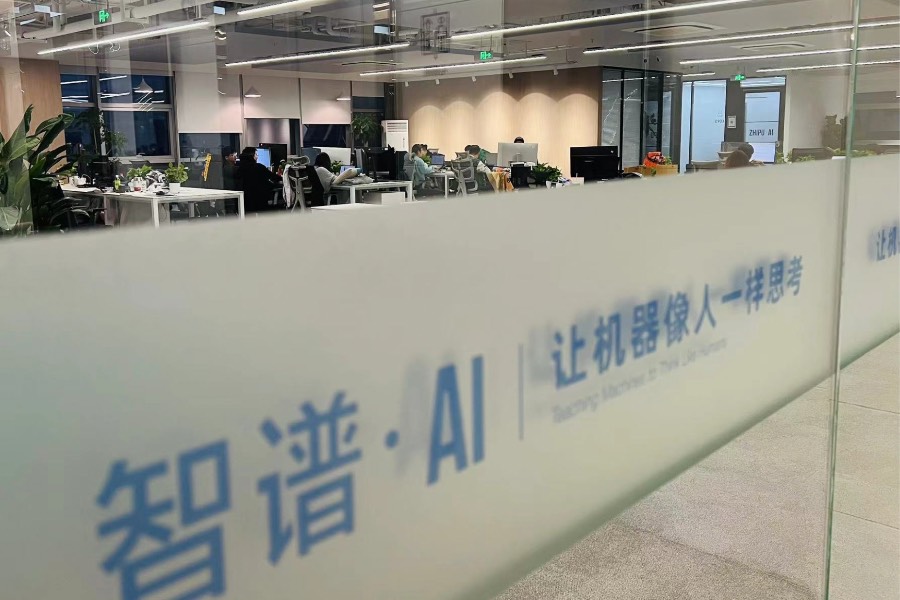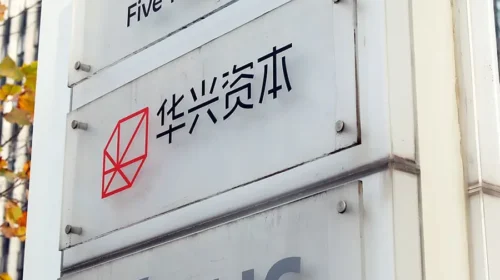Zhipu shifts IPO strategy amid management turmoil, stiff competition

The AI firm, which has begun the process for listing on one of China’s A-share markets in Shanghai and Shenzhen, is reportedly also considering Hong Kong
Key Takeaways:
- Zhipu may be shifting its IPO plans, as it experiences major executive upheaval with the departure of several top managers this year
- The AI company’s valuation hit 40 billion yuan following a funding round this year, the latest of many in its brief history
Lau Chi Hang
DeepSeek may be grabbing all the headlines as China’s homegrown challenger to foreign AI dominance. But U.S.-based ChatGPT creator OpenAI more likely views Beijing Zhipu Huazhang Technology Co. Ltd. — a low-profile operator that avoids the public eye — as its biggest competitive threat.
OpenAI openly acknowledges Zhipu’s central role in Beijing’s international tech aspirations, citing its overseas operations and deep government ties as global concerns. The U.S. government appeared to validate such worries with its decision to add Zhipu to its “entity list” in January, essentially cutting off the company from many of its U.S. suppliers.
Hong Kong investors may be less familiar with Zhipu, which harkens from Beijing. But that could soon change, following a recent Bloomberg report that the company is weighing a Hong Kong IPO that could raise around $300 million. Such a move would mark an abrupt shift after Zhipu previously began the process to list on one of China’s A-share markets in Shanghai and Shenzhen.
LLM luminary
Founded in 2019 with a focus in foundational large language models (LLMs) that underpin generative AI, Zhipu grew from roots at Tsinghua University, China’s leading sciences school, where it was set up by the pair of Tang Jie and Zhang Peng. The company was spun out as a separate entity and has gone through over 10 funding rounds in its brief history. Its investors include major private names like internet giants Alibaba and Tencent, and leading private equity firms HongShan and Qiming.
China’s state-owned complex joined the act this March, investing 1.8 billion yuan ($251 million) from names including Zhuhai Huafa Group, Hangzhou Urban Construction & Investment Group, and Chengdu Hi-tech Industrial Development Zone. Following that funding, Zhipu’s latest valuation stood at about 40 billion yuan, or more than $5 billion.
Considered one of the strongest among China’s “Six AI Tiger Startups” due to its early start and state backing, the company’s flagship GLM-130B model won kudos when it emerged as Asia’s sole representative in Stanford University’s 2022 benchmark of major global LLMs.
Executive exodus
ChatGPT’s meteoric rise in 2023 set off a stampede among private Chinese investors in search of a Chinese equivalent, which naturally led many to line up at Zhipu’s doorstep. Yet fast-shifting market dynamics that outpaced the company’s own model development cycles have quickly dimmed Zhipu’s shine.
As things around the company heated up, executive departures began to snowball over the past six months. Chief strategy officer Zhang Kuo and financing vice president Qu Teng left in quick succession early this year, causing Zhipu’s fundraising to lose momentum. That was followed by the resignation in February of Li Huizi, vice president of applied AI and partnerships.
Things quieted down for a few months, until COO Zhang Fan announced his departure last month, reportedly due to dissatisfaction with Zhipu’s latest internal realignments. Rumors also emerged that Dong Yuxiao, head of Zhipu’s AI research institute, had resigned, although the company denied that.
Just as that wave of departures was beginning, Zhipu and the other foundational LLM-focused tigers were blindsided when a more cost-effective DeepSeek burst on the scene at the start of this year, causing strategic upheavals across the sector, not only in China but globally.
Disruptive entry
DeepSeek’s launch of its DeepSeek-R1 AI model in January made huge waves by showing that quality products could be made at low cost, creating an awkward situation for LLM enterprises like Zhipu and OpenAI that consumed huge amounts of money and resources. As that happened, investors began to question whether they should still be plowing massive funds into foundational LLMs that lie at the heart of generative AI.
As the ground suddenly shifted, one such startup, Baichuan Intelligence, founded by internet veteran Wang Xiaochuan, immediately shifted its strategy, no longer investing in foundational models but instead focusing on healthcare applications. 01.AI, another startup founded by former Google China CEO and AI booster Lee Kai-Fu, also announced it would stop investing in developing foundational models.
A heated round of price wars quickly ensued as China’s bumper crop of AI startups battled for customers. Zhipu’s price plunged to just 0.06 yuan per million tokens for its GLM-4-Flash — a 99.99% drop from the 500 yuan per million tokens a year earlier. Such price wars are common in China, especially in emerging sectors like AI, where companies, often backed by deep-pocketed investors, rapidly pile into new spaces in hopes of making big bucks.
DeepSeek-R1’s rollout at the start of this year only added to the pressure on Zhipu, drawing away many clients who now prefer DeepSeek’s models. That’s had a big impact on Zhipu’s B2B deployments as it finds it increasingly difficult to secure new corporate orders.
According to Caijing magazine, Zhipu’s revenue last year was about 3 billion yuan. But its net loss that year reached 2 billion yuan as the company burned through money due to its heavy commitment to in-house R&D despite revenue bottlenecks and its inability to reduce high development costs for LLMs.
Boxed in by such structural pressures, Zhipu’s near-term prospects could rest heavily on an IPO lifeline, be it in Shanghai, Shenzhen or Hong Kong. Such a listing would buy the company more time and a chance to create a more sustainable foundation to grow from and eventually become profitable. The Hong Kong IPO market is currently hot, especially for AI stocks. Recognizing this, Zhipu appears to be continuing ahead with its IPO process on the A-share market, while also preparing Hong Kong as a potential backup.
To subscribe to Bamboo Works free weekly newsletter, click here





